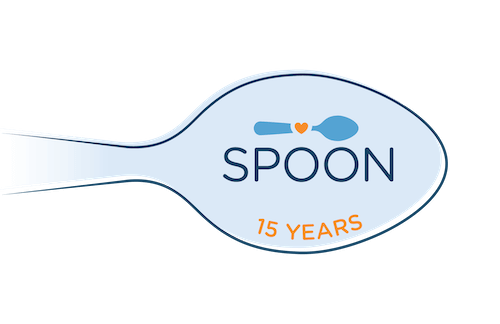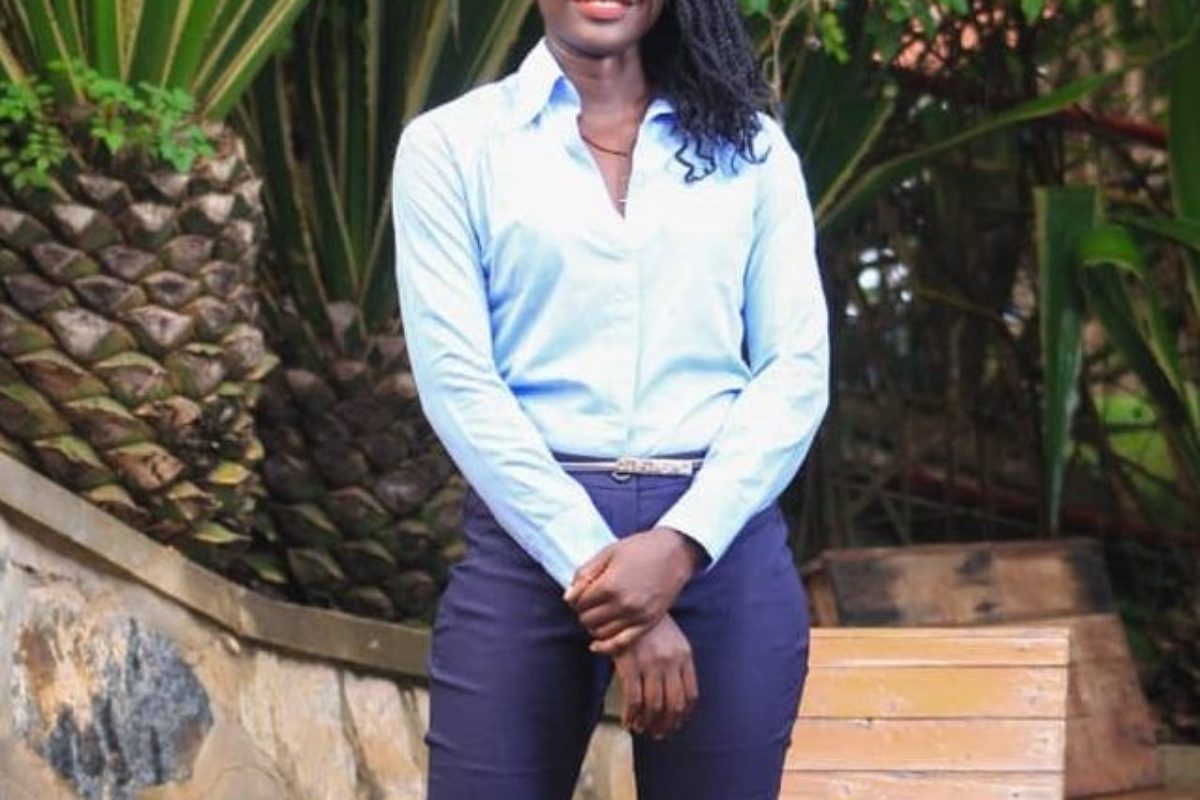
Lutgard Musiime is a Master Trainer with SPOON and the Association of Religious (ARU) in Uganda. SPOON and ARU’s Catholic Care for Children in Uganda program are working together to improve nutrition and feeding for children in alternative care, children returning to their families, and children with disabilities. Lutgard and her fellow Master Trainers lead SPOON’s training for caregivers in Uganda. Read on to learn more about Lutgard and her experience with the program.
Tell us a bit about your background and your current role.
I am a nutritionist, writer, and author with a passion for changing and impacting lives through improved nutrition practices. I have been working in this field for over 6 years and recently authored a book on disability and nutrition. As a Master Trainer, I work with Catholic Child Care Institutions with children under the age of five and children with disabilities that affect their feeding. I train caregivers on the principles and practices of nutrition needed to improve outcomes of children who are currently, or at risk of, living outside of their permanent families.
Why is it important to you to focus on feeding and nutrition for children with disabilities and children without family care?
Throughout my experience working with communities in the rural areas of Uganda from the North East in Karamoja to the Western part of the country, I find that malnutrition is affecting many children. My own findings tally with the UNICEF 2019 State of the World Children’s report showing three out of 10 children under five years in Uganda are stunted (short for their age), 280,000 wasted (too thin), and over 53% anemic.
Good nutrition is the bedrock of child survival and development. Children with disabilities are often in greater danger of malnutrition, sometimes because the child has difficulty sucking, swallowing, or even holding food. When this happens and there is no one to help, it deprives the child of the nutrients they need, leading to malnutrition. Well-nourished children are better able to grow, learn, play and participate in their communities, yet many children with disabilities and those living outside family care are not getting the nutrition they need to survive and thrive. It is therefore important to empower caregivers with proper nutrition knowledge and feeding practices.
What is an example of a change you have seen through your work?
In Uganda there is a common practice among parents to feed their babies using bottles with cut nipples – one whose hole has been enlarged allowing a higher volume of liquid to go through. While working in Mbarara, a mother came to me with her 2-months-old child, very frustrated because of lack of enough breastmilk. This had led her to resort to using cow’s milk via a feeding bottle. Her baby was struggling with constipation and almost choked on every feed. She was using a bottle with a cut nipple, and she said she needed it to make the feeding easy for her and the child.
At the end of our nutrition talk, she understood that the bottle with the cut nipple was the reason the child was choking on almost every feed. The volume of the feeds being released were more than the child could handle and she ended up choking, putting her at risk for aspiration. The constipation was coming from the fact that the baby’s digestive system had not been developed enough to handle cow’s milk.
I saw this mother a month later and was delighted to learn how her child’s feeding had improved. Also, she had become an advocate for better feeding practices in her community. We gave her more reading materials to facilitate her learning and were more than honored to have contributed to the wellness of this mother, her child, and the entire community.
What else needs to happen to ensure all children have access to the nutrition they need?
We need to intensify work to address nutritional needs of young children, especially right from conception until they are 2 years. This can be done through continuous capacity building of all health service care providers starting from the village health teams who are the first point of contact of mothers in the community.
We are in the middle of a pandemic and Uganda, like many countries, is grappling with its effects. In crises like these, children with disabilities and those living without family care are even at a greater risk of hunger and consequently malnutrition due to the reduced socio-economic support they receive. We need to train mothers and caregivers on improved nutrition feeding and practices, like how to prepare low-cost nutrient-dense foods. We also need to promote the diversification of crops including underutilized traditional vegetables and legume crops, appropriate production of animal-source products as needed by these children, and encourage consumption of a variety of foods.
Lastly at the national level, we need to demand for the implementation of the Uganda Nutrition Action Plan II whose mission is to end hunger, achieve food security, and improve nutrition by 2030. This can be facilitated by breaking down the objectives of this plan into formats that are easily understandable by the local person at their level so that they can advocate for these services. Malnutrition can only be tackled by addressing it at every stage of the child’s life and by putting children’s nutritional needs in the center of agricultural practices, health service delivery, water and sanitation, education and social protection.
Thank you to Lutgard for sharing your perspective with us and for leading the way in Uganda. We look forward to bringing you more from our local organizations in our next Partner Profile.


